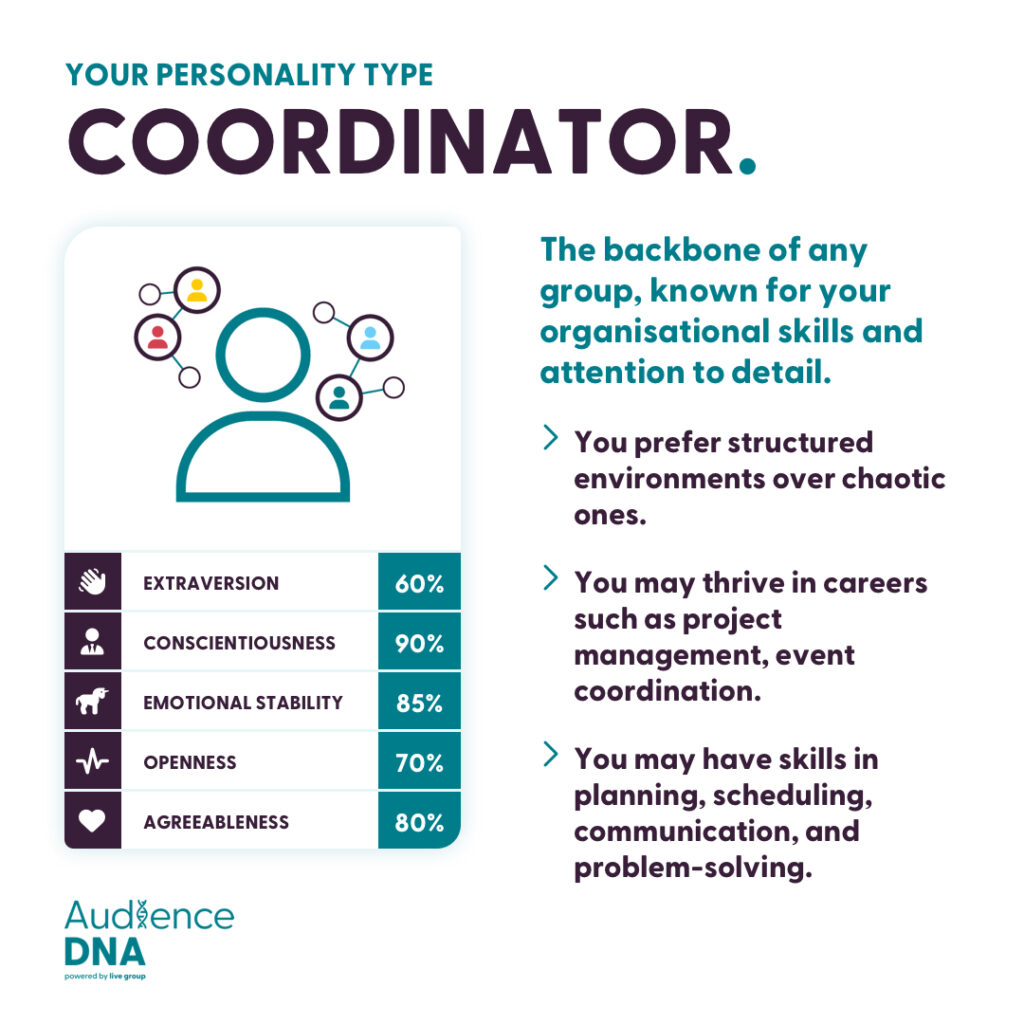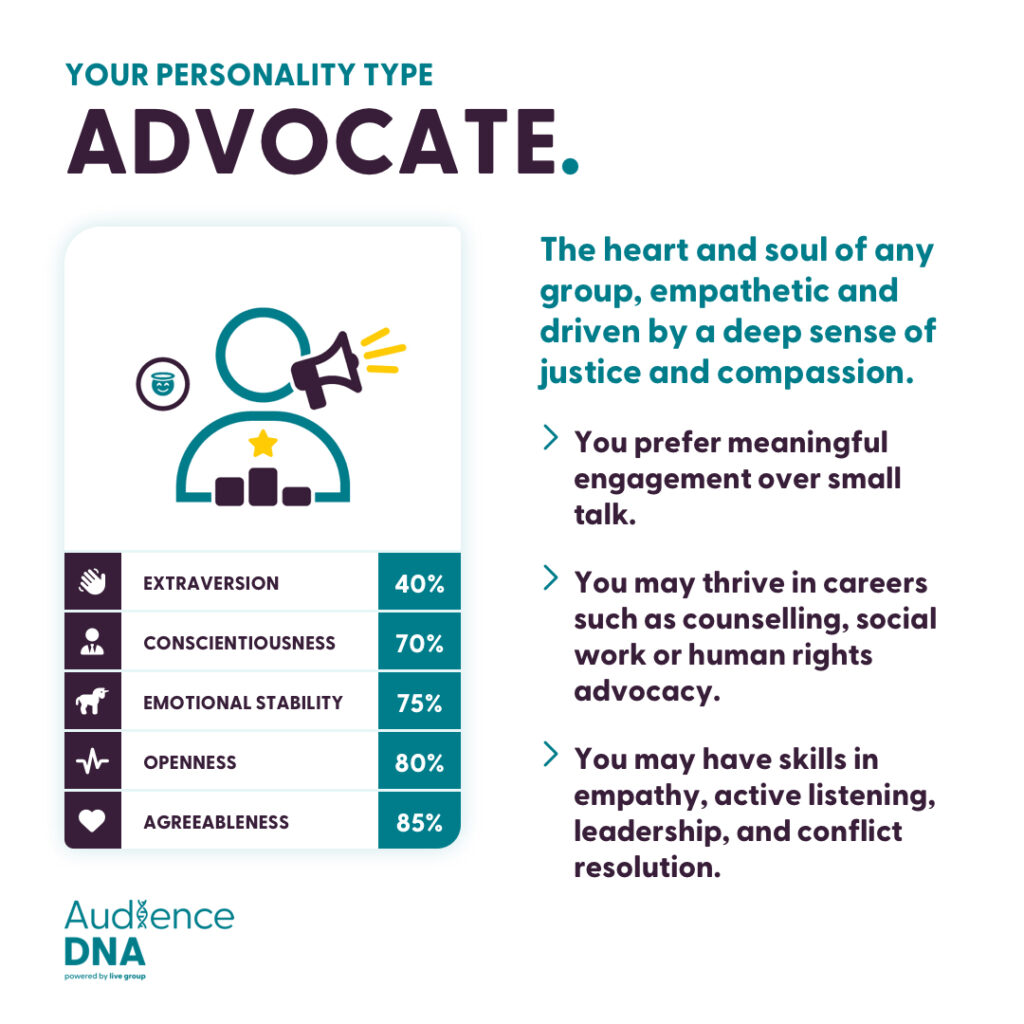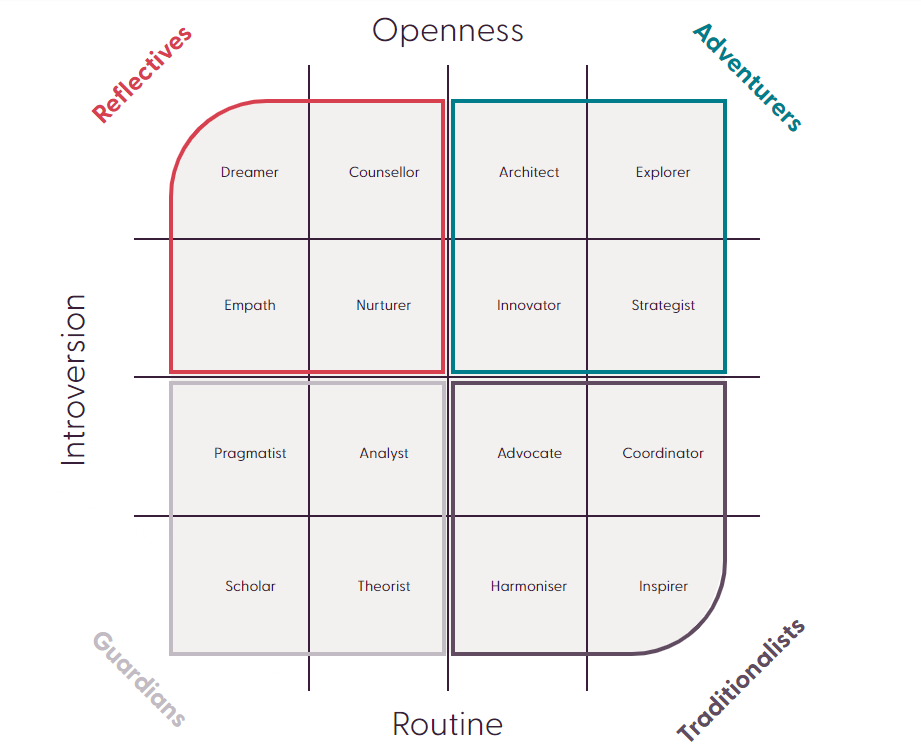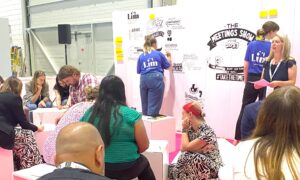In today’s complex world, where modes of communication and information sharing are constantly shifting and evolving, it has never been more advantageous to get an intimate understanding of your own unique personality style. Learning about what informs your behaviours allows you to navigate these shifts with more confidence and better adaptability.
The AudienceDNA philosophy seeks to bring order to and describe the vast diversity of what makes us, us in the form of 16 personality types. Through this, we can make the infinite complexity of human nature accessible and easy to understand. If you can view the way you think and behave in a broader context, you can start to enrich your interpersonal relationships.
Discover your unique personality type with AudienceDNA and explore how you fit into one of these 16 profiles:

Each type falls within four broad quadrant families: Reflectives, Adventurers, Guardians, and Traditionalists.
What is the principle behind AudienceDNA?
Rooted in proven psychological frameworks and enhanced by data, AudienceDNA helps you understand your personality profile, which is key to unlocking your potential and navigating both personal and professional spaces more effectively.

For example, if you are a Coordinator, you do best in structured environments, using your organisational skills to lead projects or teams efficiently.
In contrast, an Advocate might excel in roles that demand empathy and social justice, such as in non-profits or mediation, where they balance compassion with sound decision-making.

While there is obvious benefit to the individual by becoming familiar with this concept. organisations and events agencies should also take note. When you create environments, whether it be a conference or workspace, paying attention to the way people prefer to absorb information, interact with others, and organise their days is crucial to creating experiences that resonate, and most importantly, engage.
Why AudienceDNA?
Your personality profile will be one of 16 that fall within four broad quadrant families: Adventurers, Reflectives, Guardians, and Traditionalists. Each of these categories influences how we engage with our surroundings.

- Adventurers tend to be spontaneous and enthusiastic. They thrive in dynamic, high-energy environments and love exploring new experiences. At events, they’re the first to jump into interactive activities, networking sessions, and anything that offers excitement and novelty.
- Reflectives value deep thought and introspection. They prefer quieter settings where they can engage meaningfully in small groups or 1:1 conversations. Workshops or breakout sessions designed for deeper dives suit them best.
- Guardians seek stability and structure. They appreciate clear schedules and well-defined roles at events. Guardians engage best in settings where expectations are laid out, and they can follow a logical flow of activities.
- Traditionalists value consistency and trust in established systems. They engage in events that offer familiar formats, such as keynote speeches or roundtable discussions. Traditionalists like to know what to expect and often focus on gaining practical takeaways.
How Personality Types Influence Event Engagement
At events, personality types shape how people prefer to connect and engage. Extraverts and introverts approach events differently. Extraverts, in the Adventurers camp enjoy lively networking, panel discussions, and any group-oriented activities.
In contrast, introverts—often associated with Reflectives family—tend to prefer quieter, more structured environments where they can absorb information and engage in thoughtful discussion.
- For extraverts, events are an opportunity for dynamic interaction. They’ll gravitate towards the more spontaneous parts of the day: networking lounges, group workshops, or Q&A sessions where they can actively participate.
- For introverts, it’s essential to offer quieter spaces where they can reflect and recharge. Smaller group sessions or individual reflection time in between larger activities will enhance their experience.
There is, of course, nuance—some personality families contain both introverts and extraverts. The AudienceDNA approach helps navigate these complexities, allowing you to create experiences that are not only memorable but also engaging for everyone, no matter their personality type or communication style.
Applying this philosophy to your event can increase engagement, ROI, feedback, and delight for delegates and clients.
There’s still much work to be done in creating more accommodating spaces that recognise and celebrate different learning styles and neurodiversity, but the AudienceDNA way is an important step towards building environments that engage and empower every individual to thrive.
By understanding how personality types influence engagement, event organisers and organisations can offer tailored experiences that foster deeper connections, collaboration, and success.





